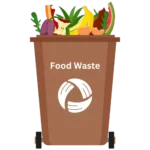Pub waste collection
Get a FAST & FREE quote for pub waste collection
Just enter your postcode…
Get a FAST & FREE quote for pub waste collection
Just enter your postcode…
Start saving now
Choosing the right provider for your pub’s waste collection is essential for maintaining hygiene standards, ensuring compliance with waste regulations, and keeping costs under control. Here’s why pubs across the UK trust us to manage their waste collection:

We offer pub waste collection services across the UK, supporting everything from small local pubs to larger chains. No matter your location, we provide professional, reliable, and compliant waste services.

We work exclusively with experienced, reliable and fully licensed waste providers who understand the unique requirements of pubs. Your waste is handled safely and responsibly, from food and glass waste to general waste and mixed recycling.

Our team will prepare a bespoke quote tailored to your pub’s specific waste streams and collection needs. We offer competitive pricing without compromising on compliance, safety, or service standards.
Pubs generate a mix of waste, from food scraps and glass bottles to general waste and recycling. Having a reliable waste collection service in place helps keep your premises clean, safe, and compliant with waste regulations.
Here’s how to get started:

Enter your postcode above and tell us about your pub’s waste collection needs, including the types of waste you produce and how often you need collections.

Our experts will review the details and prepare a tailored quote based on the volume and mix of your pub waste and waste services available at your location.

Once you’re happy with the quote, sign your commercial waste collection contract to activate your service and schedule your regular collections.
Pub waste isn’t just limited to glass bottles or uneaten food. It also includes everyday waste such as packaging, cardboard, hygiene items, and general rubbish.
Effective waste segregation and disposal are essential to keeping your pub running smoothly, complying with waste regulations, and reducing your overall waste costs.
Below are the key waste types landlords must manage:

General business waste collection covers everything that can’t be recycled. This includes food-contaminated packaging, broken items, and other non-recyclables. Regular collections keep your premises clear and compliant with UK waste regulations.

Commercial dry mixed recycling collection is ideal for pubs that produce a steady stream of recyclables like aluminium cans, plastic bottles, and paper. All these materials can go in one bin, making recycling easier and reducing the amount of waste sent to landfill.

Commercial glass waste collection is one of the most common services pubs need. We collect bottles, jars, and broken glass from behind the bar or kitchen. By keeping glass separate, it can be safely recycled and helps prevent contamination of other waste types.

Commercial cardboard waste collection helps pubs deal with the large volumes of packaging from food deliveries. Flattened cardboard is stored in a dedicated cardboard commercial waste bin to keep it clean and dry.

Commercial food waste collection is perfect for managing customer leftovers and expired kitchen ingredients. By keeping food waste separate, it can be used for anaerobic digestion, helping to generate renewable energy.

Sanitary waste collection is essential for maintaining hygiene in customer toilets and staff facilities. It covers nappies, incontinence products, and feminine hygiene waste, helping you meet sanitary waste obligations and provide a clean experience for patrons.
We provide reliable pub waste collection services nationwide, helping independent pubs, chains, and venues manage food, glass, recycling, and general waste efficiently. Wherever your pub is based, we can arrange tailored collections that suit your schedule, premises, and volume.

Our Leeds commercial waste collection service supports everything from busy pubs in Headingley and the city centre to quieter neighbourhood locals. We offer tailored food, glass, and general waste collections to keep your operations smooth, compliant, and ready for the next happy hour.

Pubs across Sheffield benefit from our flexible and dependable services. Whether you’re in Kelham Island, the city centre, or the outskirts, our Sheffield commercial waste collection covers everything from dry mixed recycling to food and glass waste, helping you easily manage it.

York’s historic pubs and busy tourist trade mean waste builds up quickly. Our York commercial waste collection service ensures timely, efficient pickups for glass, food, general waste, and recycling, keeping local pubs clean and your bins under control year-round.

From seafront pubs in Southsea to city-centre venues, our Portsmouth commercial waste collection helps you manage high-volume weekend waste and everyday operations. We collect everything from food waste and glass to recycling and general rubbish with flexible scheduling.

We support pubs across Derby with affordable, reliable waste services. Whether you run a traditional or a gastro pub, our Derby commercial waste collection includes glass, cardboard, food, and general waste options to keep your bins clear and your venue running smoothly.

With its vibrant pub scene and student nightlife, Southampton venues need efficient waste management. Our Southampton commercial waste collection includes late-night glass pickups, regular food waste services, and reliable general waste collections across the city.
Reducing waste in your pub is good for the environment, helps cut commercial waste collection costs, and keeps day-to-day operations running more smoothly. Below are practical ways to reduce waste while complying with commercial waste regulations.

Switching from single-use plastics to reusable or compostable options like bamboo cutlery, paper straws, or washable glasses and plates can significantly reduce landfill waste.

Organic waste is a major issue in busy pubs. By collecting food scraps separately for composting in your pub garden, you can reduce your reliance on expensive waste collection.

Purchasing ingredients, mixers, and cleaning products in bulk reduces unnecessary packaging. Refillable containers, kegs, and larger products all help generate less waste behind the scenes.

Paper menus, printed receipts, and shift rotas can all be switched to digital alternatives. QR menus, e-receipts, and staff apps reduce paper use and improve efficiency.

Consistent waste segregation starts with the people handling it. Regular staff training helps avoid recyclable materials ending up in the wrong bin and builds a shared sense of responsibility.

Keeping a closer eye on stock levels helps reduce spoilage and food waste. Use inventory tools or shorter ordering cycles to ensure you only bring in what you’ll use.